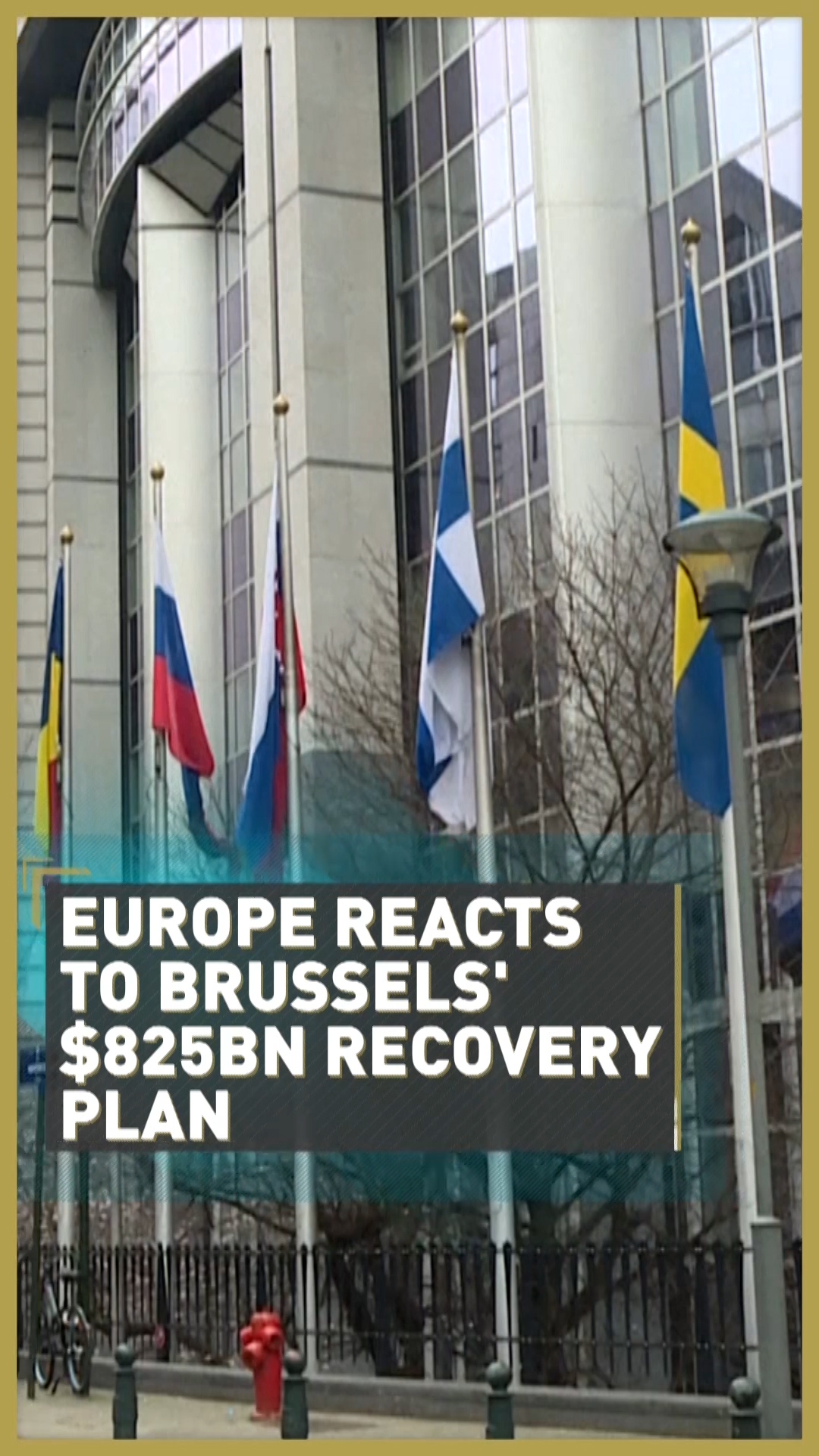04:10

The huge financial package proposed to blunt the economic devastation wrought by the coronavirus could change the European Union forever.
If approved, it would allow the European Commission to raise an unprecedented amount of money in the financial markets, a first for the bloc. It would also bind the union closer together by allowing the transfer of money between member states, fueled by pooled debt.
"It's not clear if it's going to be a model that will be taken forward for a generation," said James Watson, director of economics at BusinessEurope. "But I would say, for the moment, it seems to be a solution that has been very well accepted in the markets."
The Commission's plan is two-pronged: an $825 billion recovery fund dubbed "Next Generation EU" and a $1.2 trillion long-term budget.
"Yes, the effects of this crisis mean we need to make investments on an unprecedented scale today, but we will do it in a way that Europe's next generation will reap, will harvest, the benefits tomorrow," said European Commission President Ursula von der Leyen as she unveiled the proposal in parliament on Wednesday.
Brussels doesn't want to waste a good crisis
Next Generation EU has Brussels' ambitious goal of becoming climate neutral by 2050 at its core, with 25 percent of all funding set aside for climate action, according to the Commission.
Experts say it's a clever move to rally an often splintered group of 27 member states around a single, worthwhile cause. And it could encourage some reluctant countries to make concessions on other parts of the plan they may disagree with.
"It's clear that if we want our businesses to be able to compete globally in the coming years, they're going to have to be competitive in terms of how they impact the environment. So I think the Commission is right to have a certain focus on the low-carbon economy in this package," said Watson.

Ursula von der Leyen's plan builds on a scheme agreed between her native Germany and France for a 500 billion euro ($543 billion) recovery fund. /AFP/Kenzo Tribouillard
Despite a rallying cause, an acrimonious battle lies ahead.The Commission's plan calls for two-thirds of the recovery money to be doled out as grants, while the remainder would take the form of cheap loans. This is likely to face opposition from the fiscally conservative northern European nations – Austria, Netherlands, Sweden and Denmark – dubbed the "frugal four," which reject the idea of cash handouts.
"Negotiations will take time," said a Dutch diplomat. "It's difficult to imagine this proposal will be the end state of those negotiations."
Friction is expected over how the Commission plans to pay back the money. According to the plan, it would be paid back over several decades, starting in 2028 and would happen via increased budget contributions and new sources of revenue.
READ MORE:
German engineering partners with Chinese manufacturing
"They proposed to levy a bunch of taxes, which is a new thing, a revolution in a way, for the EU to levy taxes. Some of this would be on U.S. tech companies. Some of it would be a border-adjust tax for carbon," said Jonathan Hackenbroich, policy fellow at the European Council on Foreign Relations. "That's definitely going to be a sticking point in the negotiations."
Member states now have the unenviable task of negotiating a final deal, which could take months. But time is running short. Just before Brussels laid out its plan to save the bloc from the economic precipice, the European Central Bank said the crisis could trigger a recession twice as deep as that from the 2008 Global Financial Crisis.
**Remember to sign up to **
Global Business Daily here
** to get our top headlines direct to your inbox every weekday**
 简体中文
简体中文

